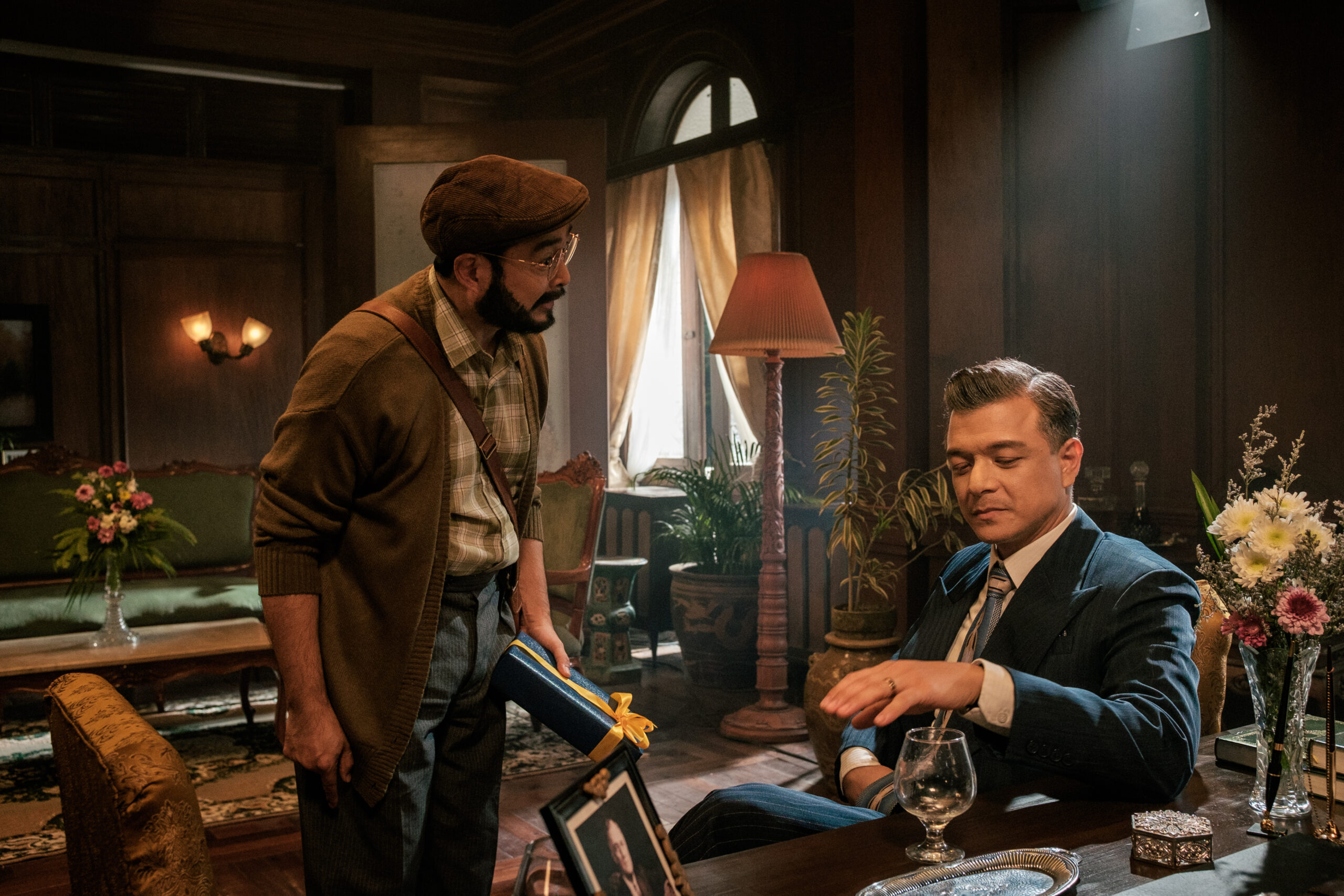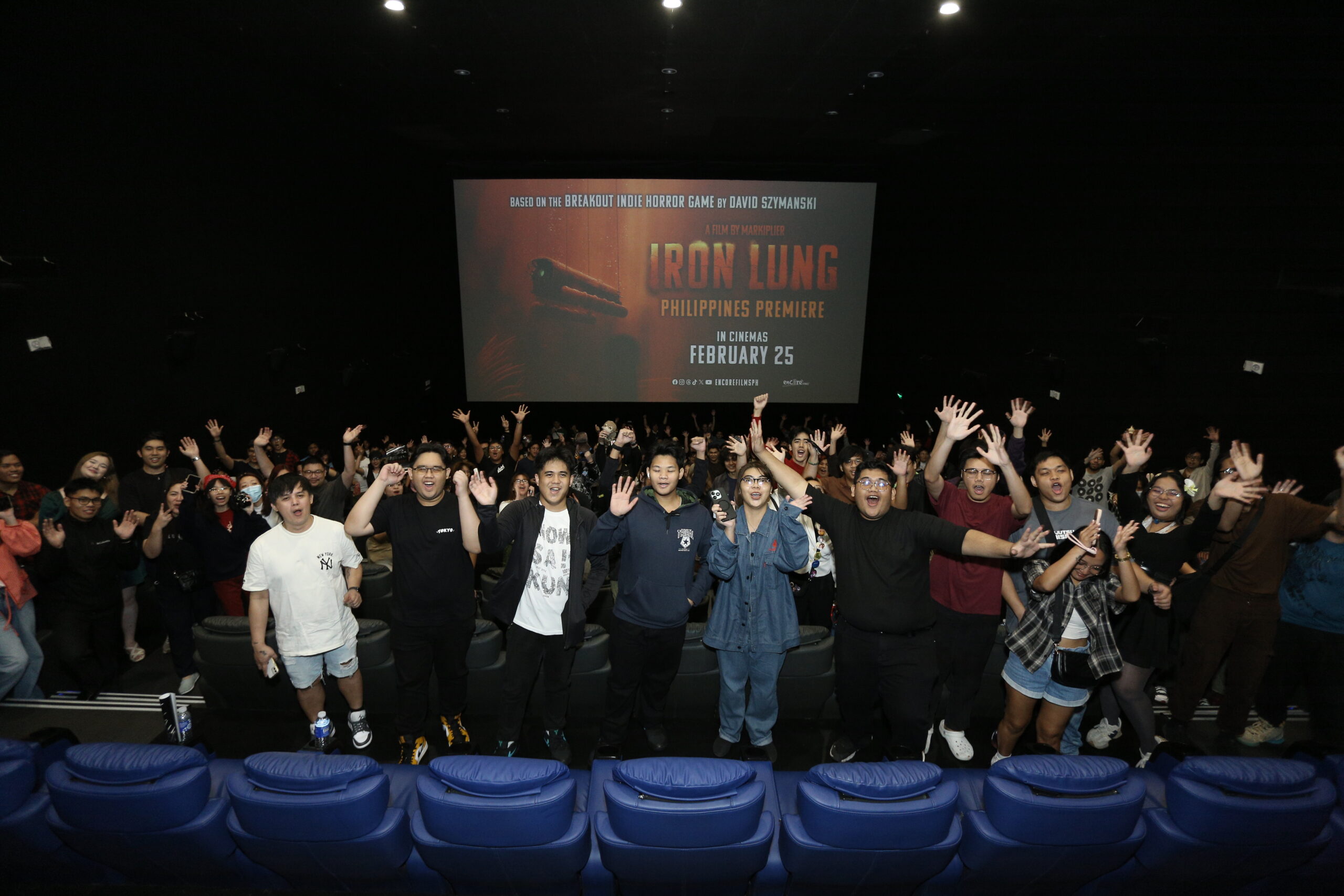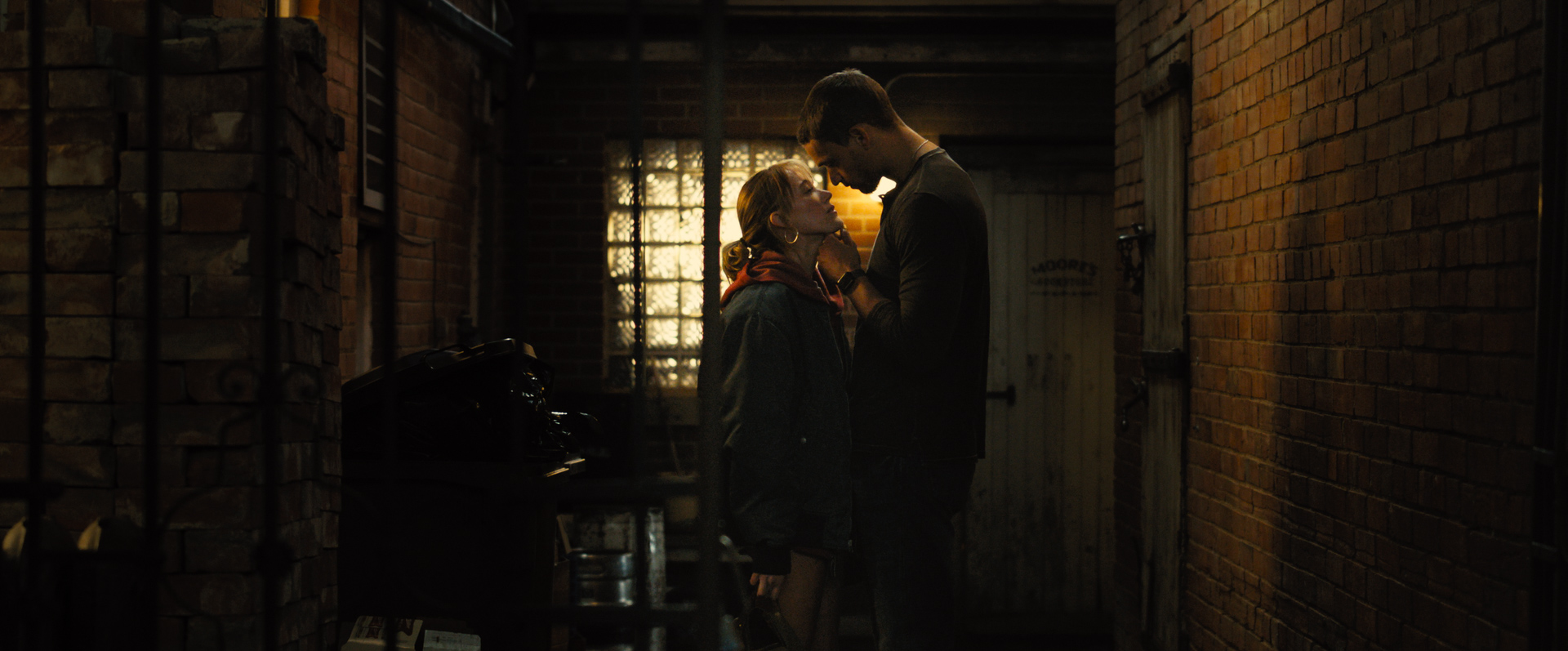Jerrold Tarog’s Quezon couldn’t have come at a better time.
The final film in the highly relevant and crowd-pleaser Bayaniverse series tackles the rise to power of the country’s first Commonwealth President and a key figure in the country’s fight for independence from the United States.
It’s not common for some to think most historical movies are boring because of the way they’re made. Those that I’ve seen tend to follow a chronological order of events and are laden with drawn-out verbose that often feel like you’re just listening to a textbook on Philippine history. Even the greats like Marilou Diaz-Abaya’s Jose Rizal can fall into this trap.
Which is why Quezon feels like an innovative way to depict historical figures. Writers Tarog and Rody Vera found a fresh and clever way of storytelling. The movie never lets up. The intensity in which the movie opened remained consistent throughout its 139-runtime. Even with, sometimes, lengthy dialogues, the scenes never lose its grip on the audience. Thanks mostly to the riveting performance of its lead actors.
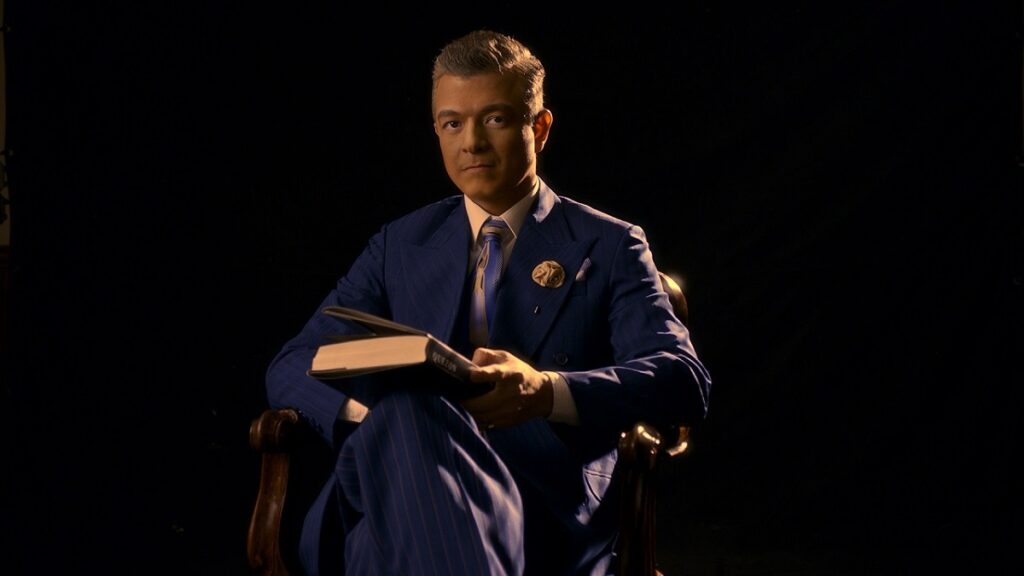
Jericho Rosales plays the titular character. And he couldn’t have done a better job. Rosales gave an outstanding, award-winning performance.
His accent, at first, was a bit off-putting (mostly because I never knew the real Quezon spoke this way) but he was so committed to it by the time the first couple of scenes ended, you’re simply enamored by this character. Rosales fully captured the essence of a politician, both the charming and cunning traits. Watching him wheel and deal unscrupulously will make your blood boil but once he put on that sweet smile and refer to Sergio Osmeña or Leonard Wood as “mi querido” you’ll find yourself rooting for him to get what he wants. He is that charming.
Quezon would have done so well in Survivor. In fact, he can win it. He can win it in ways the likes of Parvati, Sandra, Rob, Kim, or Yul can’t. He’s that good in scheming. He’s deviously intelligent and can charm his way out of any situation. I never knew that one of the most heralded political figures in the country was this cunning–and morally questionable. School textbooks didn’t really give us this side of his persona.
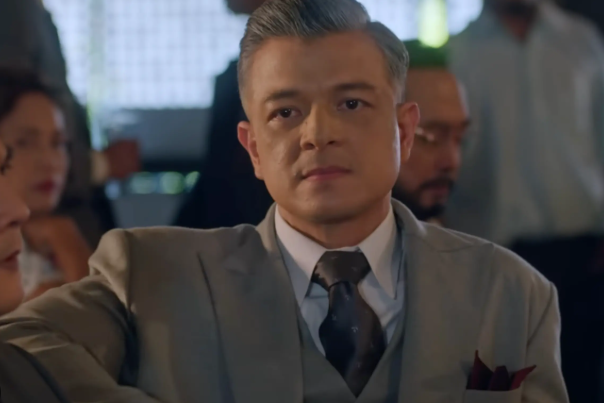
Rosales did us all a favor by portraying him so well it cracks the illusion most of us have of politicians like him.
But the actor wasn’t alone in that boat. His brilliance as lead was enhanced by an equally great supporting cast namely Iain Glen (Leonard Wood), Mon Confiado (Emilio Aguinaldo), Romnick Sarmienta (Sergio Osmeña), Cris Villanueva (Joven Hernando), Karylle (Aurora Quezon), and Therese Malvar (Nadia Hernando). Even those who didn’t have as much screentime delivered.
The script was just as great. Even though laced with fictional characters and events, the life of a former president is a rich material and capturing all pertinent events and translating them to the screen can be risky because not everything may resonate well with audiences. Some will bore people. While some may pose a challenge especially when it tackles historical facts not everyone is privy to. So it’s important to tell them in a way that still keeps attention. Going meta was an excellent choice. Presenting Quezon’s early life as propaganda movies was a clever way of doing flashbacks. Not only did this make it easier to digest these moments in the character’s life, it also became an effective plot device.
The transitions from real-life scenes to the black-and-white movies which then switch to life within the movies are seamless. Nice editing work.
It complements the quick, dynamic plot. The shifts from Quezon being charming with people he’s trying to persuade to him losing his cool and shouting expletives can sometimes feel comical, especially with the playful, almost animated score used. The intercuts between Quezon and Osmeña exchanging tirades while talking to the press highlights the importance of one of the themes explored: media’s role in shaping our political climate.
The movie started on a high note. We see Quezon being celebrated after winning the elections. Everything is extravagant. And this is captured by the production design, the over-the-top dialogues, and musical score. And then it shifts once we get to the darker side of politicking. The more we get inside the inner workings of Quezon’s mind as his lust for power, masked by the desire to free the country from colonialism, take him to places that unravel a darker side, the movie shifts in tone. The score becomes more somber, the exchanges devoid of the playful banters.
It begins to reveal Quezon’s nature–the one we didn’t read much of in textbooks. And as he becomes more scheming, we start to see the parallels in today’s climate. In his quest for power (and maybe self-glorification), he resorts to fake news, alienates allies, and abuse of power. He ultimately lays down the foundation of the patronage system, which still permeates our society today. He attempts to muzzle the media and control the narrative to his favor. All these under the guise of fighting for the country’s independence. So while he deals guilefully behind the scenes, he presents himself as a lovable leader out to liberate everyone. And the public hungrily chomps on this.
Along the way, Quezon seems to lose himself and starts to think that he’s the only one who can free the country. In the end, his messianic attitude drives him to resent his friend and political ally for simply being healthier, thinking he deserves it more because he can do more for the nation.
He shouts “I am the Philippines!” as he is wheeled inside a bunker.
That line perfectly captures the kind of person he has become in his quest for glory and power.
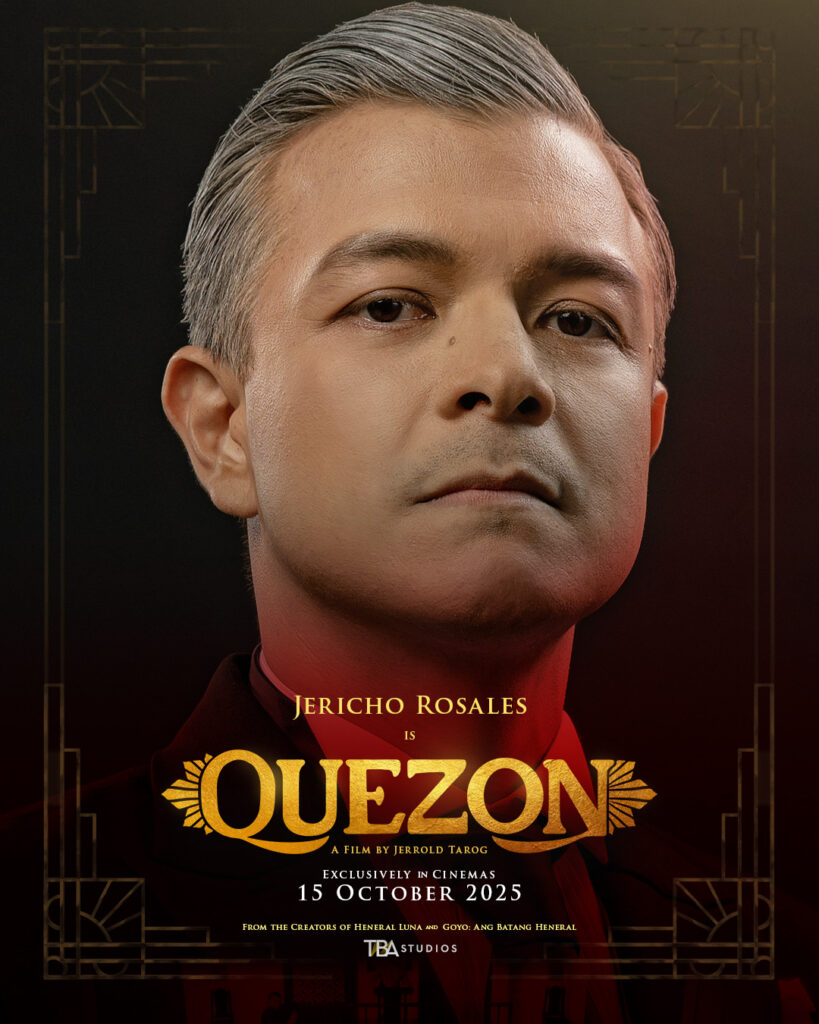
Quezon is now showing in Philippine cinemas.
